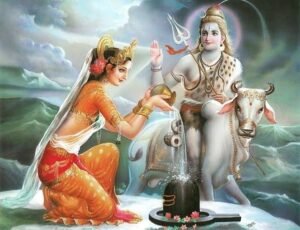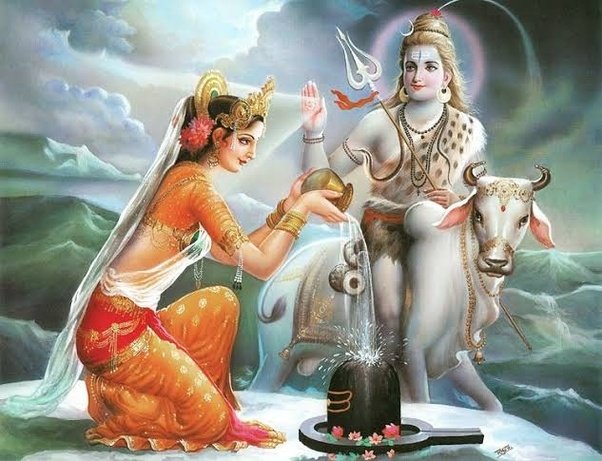
Introduction to Solah Somvar Vrat
The Solah Somvar Vrat is a revered ritual dedicated to Lord Shiva. It involves observing fasts on sixteen consecutive Mondays, with a strong belief that such devotion brings divine blessings and fulfills wishes. Mondays are considered highly auspicious for Shiva devotees, and this vrat holds special significance in the Hindu tradition.
Significance of Solah Somvar Vrat
Observing the Solah Somvar Vrat is believed to bring immense benefits. Devotees undertake this fast to seek blessings for prosperity, happiness, and the fulfillment of desires. It is especially popular among women, who pray for a good husband, marital bliss, and the well-being of their families. The vrat is a testament to unwavering faith and dedication towards Lord Shiva.
Best Time to Start the Solah Somvar Vrat
Choosing the Right Month
The choice of the month to begin the Solah Somvar Vrat is crucial. While devotees can start this vrat at any time, certain months are considered more auspicious:
- Shravan Maas (Sawan Month): This is the most auspicious month for starting the Solah Somvar Vrat. Shravan, falling typically in July-August, is dedicated to Lord Shiva. The entire month is filled with special prayers and rituals in Shiva temples, making it an ideal time to commence the vrat.
- Kartika Maas: Another highly auspicious month for beginning the Solah Somvar Vrat is Kartika, which falls in October-November. This month is also dedicated to Lord Shiva, and it is believed that fasting during Kartika brings significant spiritual benefits.
- Chaitra Maas: Chaitra, occurring in March-April, is another favorable month for starting the vrat. It marks the beginning of the Hindu New Year, symbolizing new beginnings and spiritual rejuvenation.
Astrological Considerations
Astrologically, starting the Solah Somvar Vrat on a Monday that coincides with a favorable constellation or nakshatra can enhance the benefits. Consulting with a knowledgeable astrologer can provide guidance on the most auspicious day to begin the vrat.
Preparation for the Solah Somvar Vrat
Before embarking on the Solah Somvar Vrat, devotees must prepare both physically and spiritually. Here are the steps to follow:
- Mental Preparation: Resolve to observe the vrat with full devotion and sincerity. It is essential to maintain a positive and dedicated mindset throughout the sixteen weeks.
- Physical Purity: Take a holy bath early in the morning to purify the body. Wearing clean, preferably white or yellow clothes, is recommended as these colors are considered pure and auspicious.
- Gathering Materials: Collect all the necessary materials for worship, including a Shiva Lingam or an image of Lord Shiva, bel patra (bilva leaves), fresh flowers, fruits, incense sticks, lamps, and a clean cloth for the altar.
Correct Worship Method for Solah Somvar Vrat
Morning Rituals
- Cleaning the Altar: Clean the worship area and set up the altar with an idol or image of Lord Shiva. Place a Shiva Lingam if available.
- Offering Prayers: Light a lamp and incense sticks. Offer fresh flowers and bel patra to Lord Shiva while chanting the Maha Mrityunjaya Mantra or the Panchakshari Mantra (“Om Namah Shivaya”).
- Abhishekam: Perform the abhishekam (ritual bathing) of the Shiva Lingam with water, milk, honey, and other auspicious items. This is a significant part of the worship, symbolizing the purification of the soul.
- Reading Vrat Katha: Read or listen to the Solah Somvar Vrat Katha (the story associated with the vrat) to understand its significance and seek inspiration.
Evening Rituals
- Reiteration of Prayers: In the evening, light a lamp and incense sticks again. Offer bel patra and flowers to Lord Shiva.
- Chanting Mantras: Recite the Maha Mrityunjaya Mantra or the Panchakshari Mantra to invoke Lord Shiva’s blessings.
- Aarti: Perform the aarti (ritual waving of the lamp) in front of the idol or image of Lord Shiva. Sing devotional songs or bhajans in praise of Shiva.
Fasting Rules for Solah Somvar Vrat
Types of Fasting
There are different levels of fasting that devotees can observe based on their health and capacity:
- Nirjala Vrat: The most rigorous form, involving complete abstinence from food and water from sunrise to sunset.
- Phalahar Vrat: Consuming only fruits and milk throughout the day.
- Upvaas: Eating a single meal in the evening, avoiding grains and pulses, and sticking to light, sattvic food.
General Guidelines
- Early Morning: Begin the day with a holy bath and wear clean clothes.
- Devotional Practices: Engage in reading scriptures, singing hymns, and meditating on Lord Shiva throughout the day.
- Avoiding Negativity: Maintain a calm and positive attitude, avoiding negative thoughts and actions.
- Breaking the Fast: In the evening, after performing the aarti, break the fast with light, sattvic food.
Benefits of Observing Solah Somvar Vrat
- Spiritual Growth: The vrat helps in attaining spiritual enlightenment and inner peace.
- Fulfillment of Wishes: Devotees believe that observing this vrat with sincerity can fulfill their heartfelt desires.
- Health and Well-being: Fasting is also seen as a way to detoxify the body and mind, promoting overall health.
- Marital Bliss: Women often undertake this vrat to seek blessings for a harmonious and blissful married life.
Conclusion
The Solah Somvar Vrat is a profound spiritual practice dedicated to Lord Shiva. Observing this vrat with devotion, starting in an auspicious month like Shravan, Kartika, or Chaitra, and following the correct worship method can bring immense blessings and fulfillment. By adhering to the guidelines and maintaining a sincere devotion, devotees can experience spiritual growth, prosperity, and the realization of their deepest wishes.

